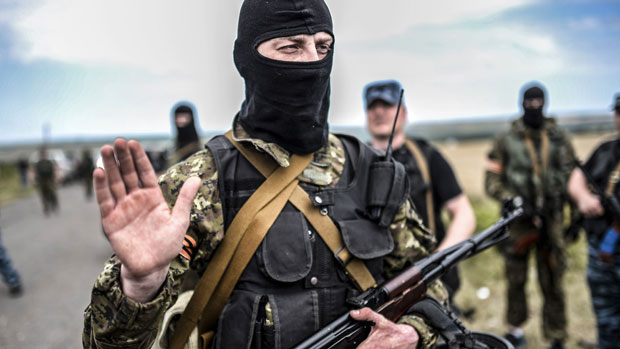How much will sanctions on Russia cost the UK and EU?
European Union due to agree new sanctions after downing of flight MH17 and fighting in Ukraine

A free daily email with the biggest news stories of the day – and the best features from TheWeek.com
You are now subscribed
Your newsletter sign-up was successful
The European Union is due to agree new sanctions against Russia following the downing of flight MH17 and as the rebel insurgency in eastern Ukraine, believed to be backed by Moscow, continues.
The measures are expected to target Russia's finance, energy and defence sectors, but commentators have warned that they are also likely to cost the UK and Europe.
According to the Financial Times, which has seen a draft of the EU sanctions legislation, Europeans would be barred from "investing in or advising on a new debt or stock offering by any Russian bank that is more than 50 per cent owned by the state". This would cover most of Russia's largest financial institutions, it says.
The Week
Escape your echo chamber. Get the facts behind the news, plus analysis from multiple perspectives.

Sign up for The Week's Free Newsletters
From our morning news briefing to a weekly Good News Newsletter, get the best of The Week delivered directly to your inbox.
From our morning news briefing to a weekly Good News Newsletter, get the best of The Week delivered directly to your inbox.
The "level-three" sanctions are also likely to include an arms embargo and a bar on the exportation of energy technologies needed for deep-sea drilling, Arctic exploration and shale oil projects.
The Times says the curbs to the Russian financial sector are "likely to cost the City of London hundreds of millions of pounds".
With Russian companies well represented on the London Stock Exchange, British trade minister Lord Livingston told the Mail on Sunday that the City of London will "take its share of the pain".
One of these firms is Rosneft, an oil firm in which Britain's biggest oil company BP has a near 20 per cent stake. This morning, BP posted a rise in second quarter profits, but warned that further sanctions against Russia could affect its business.
A free daily email with the biggest news stories of the day – and the best features from TheWeek.com
Other EU countries look set to take on more of the burden when it comes to the energy and defence sectors. The Times notes that Germany's high-tech energy exports to Russia are five times those of the UK, and France's arms exports are worth almost ten times those of Britain. However, Paris looks likely to be allowed to complete a controversial €1.2bn deal, signed in 2011, to sell two Mistral-class helicopter attack ships to the Russian navy.
"Annual EU arms exports to Russia are worth an annual £250m compared to trade armaments imported from the Russians of £2.5bn mainly by East European countries," reports the Daily Telegraph.
The EU appears to have backed away from measures that would hit oil and gas imports from Russia, as many members of the bloc are heavily reliant on Russian supplies. The Telegraph notes that this is "the most significant economic sector for the Russian economy worth 68 per cent of export revenues".
A Downing Street spokesperson today acknowledged that "some pain" will be felt in the UK. But they added: "You have to look much more broadly at the wider crisis and the fact you have had a passenger airline shot out the skies with 298 people losing their lives."